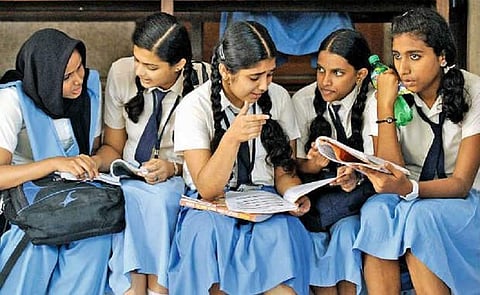

The recently released All India Survey on Higher Education (AISHE) says that students from the marginalised sections of society are still not 'well-represented' when we look at the demographics of Indian students across higher educational institutions. Students from the Scheduled Tribe categories do not even fulfil the stipulated reservation quota put aside.
It's not that the reason behind this has not been explored. But the appropriate steps have either not been taken or if taken, they evidently did not fulfil the purpose.
What does the report tell us? "The total estimated student enrolment is 3,85,36,359 out of which nearly 51 per cent are male and the remaining 49 per cent are female students. SC student enrolment is 14.7 per cent of the total enrolment. On the other hand, students belonging to ST communities constitute only 5.6 per cent of the total student enrolment. As much as 37 per cent of the total students belong to OBC communities," reads the report.
While the report merely highlights the Gross Enrolment Ratio (GER) numbers, the entire picture is clearer when you compare these numbers against the reservation allotted to these social groups. "We have concerns about the GER of STs and OBCs. GER for SCs is 14.7 per cent against a 15 per cent share of the total population, while for STs it is 5.6 against 7.5 per cent. For OBCs, the 37 per cent does fulfil the quota of 27 per cent but their population is 52 per cent according to the Mandal commission," said Kiran Kumar, President of the All India OBC Students Association (AIOBCSA). "What about employment opportunities? Dalit consciousness is increasing and Dalits are assertive in their demands. There are good academic leaders who can stand up for them. But there are very few academicians and activists who put forward the demands of the STs, especially those who live on the hills and remote forest areas and the same goes for OBCs as their reservations started only in 2007," he added.
Implementation of reservation policies in higher educational institutions, both for students and staff recruitment has always been controversial in this country. Many have accused the institutions of not abiding by the rules or making the loopholes a norm. But even if the governments, both central and state, come up with better schemes, it might not be enough, said Faisal Banna, a PhD scholar pursuing his research in Political Science from Pondicherry University. "Even if there is a setup or the government comes up with initiatives, the people from marginalised sections of the society have a hesitation to come forward and avail these. They feel that they will be cast aside there as well. It is on the government and the civil society to make them feel comfortable and help them," he said.
Incentivising education for the marginalised sections of the society is not a new perspective but are the schemes and initiatives robust enough? "There are schemes like the mid-day meal initiative that work as an incentive for not only the students but their families as well. We need to extend more scholarships and initiatives that would incentivise the students from marginalised sections in higher education as well. Residential set ups for SC, ST and OBC students would be of great help. This has been proven to be successful in schools in Andhra Pradesh and Telangana. Why cant it be extended to colleges as well?" asked Faisal.
While many economists and sociologists have been suggesting that creating jobs should be the government's focus — or at least filling up the already existing vacancies — not much has been done in that front. Kiran suggested that special care should be given to students coming in from marginalised sections. "The solution is to create greater opportunities for SC, ST and OBC students. We often see scholars with a PhD degree applying for clerical jobs," said Kiran.
